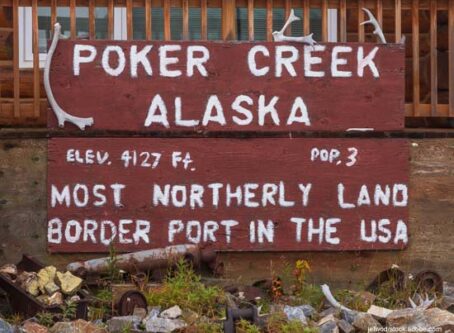Congestion pricing in New York City expected to begin in June
It’s official: New York City will be the first city in the United States to establish a congestion pricing program, assuming a federal court does not block the plan before it goes live.
On Wednesday, March 27, the Metropolitan Transportation Authority board gave final approval for congestion pricing in New York City’s central business district. The 11-1 vote of approval will kick off a 60-day public information campaign and testing period. Toll collection is expected to begin in June.
“Today’s vote is one of the most significant the board has ever undertaken, and the MTA is ready,” MTA CEO Janno Lieber said in a statement. “In advance of Day 1 of tolling, we’ve increased service on 12 subway lines, advanced redesigns of the entire NYC bus network and implemented the largest service increase in (Long Island Rail Road) history. And there’s more to come with the funds raised from congestion pricing – more accessible stations, modernized subway signals and new expansion projects like Phase 2 of the Second Avenue Subway and Metro-North Penn Station Access.”
Congestion pricing in New York City is not completely through the finish line. Several lawsuits challenging the toll are pending in federal courts, with the latest lawsuit filed the same day MTA gave the plan the greenlight.
Congestion pricing structure
Approved toll rates are the same as the rates recommended by the Traffic Mobility Review Board last November, which went to public review in December.
Congestion pricing for large trucks entering the central business district will be $36. The charge for smaller box trucks will be $24.
Buses will be charged similarly. Intercity and charter buses will pay $24, while tour buses will pay $36.
Congestion pricing for remaining vehicles includes:
- $15 for passenger vehicles
- $7.50 for motorcycles
- $1.25 per ride for taxis
- $2.50 per ride for app-based for-hire vehicles (e.g., Uber, Lyft)
Those prices are for E-ZPass customers only. Motorists who do not have an E-ZPass account will pay rates 50% higher.
For example, a trucker without an E-ZPass tag will pay up to $54, whereas a passenger vehicle without E-ZPass will pay up to $22.50.
For passenger vehicles, drivers will be capped at only one central business district toll per day. Truck drivers, on the other hand, will be charged each time they enter the district.
Peak period toll rates will apply from 5 a.m. to 9 p.m. on weekdays and from 9 a.m. to 9 p.m. on weekends. Overnight rates will be reduced by 75%.
A congestion pricing discount will apply to drivers who already have paid a tunnel toll. Specifically, drivers entering the central business district via the Lincoln and Holland tunnels from New Jersey and via the Queens-Midtown and Hugh L. Carey tunnels from Queens and Brooklyn will pay a smaller congestion pricing fee. The “crossing credit” will be $20 for large trucks and tour buses, $12 for small trucks and intercity/charter buses and $5 for passenger vehicles.
The crossing credit will apply only for trips taken during the day. No crossing credit will be given for nighttime trips, since toll rates will be reduced by 75%.
Lawsuits challenging congestion pricing
Although New York City’s congestion pricing has cleared all of the regulatory hurdles, it still has one final hurdle to cross: the federal courts.
On the same day MTA submitted its final approval, a sixth federal lawsuit was filed against the transportation agency. On Wednesday, Rockland County filed a lawsuit against MTA in a New York federal court, asking the court to halt the congestion pricing plan. The lawsuit makes the following arguments:
- Congestion pricing violates the Equal Protection Clause by discriminating against drivers from outside the central business district and in favor of people who garage their cars within the district.
- The toll is an illegal tax.
- MTA failed to properly analyze the possibility of a toll reduction for persons paying the George Washington Bridge toll or other tolls for transportation infrastructure.
- Because the toll is implemented to deter people from driving, it is subject to the Eighth Amendment prohibition against excessive fines.
Rockland County’s lawsuit was preceded by five other federal lawsuits challenging the congestion pricing plan.
Those lawsuits mostly focused on the environmental review process required under the National Environmental Policy Act. Specifically, the lawsuits argue federal, state and local transportation agencies illegally expedited that process.
Individual lawsuits have been filed by the United Federation of Teachers, the mayor of Fort Lee, N.J., residents of Manhattan’s Battery Park City neighborhood and New Jersey Gov. Phil Murphy. A class-action lawsuit was filed by a group called New Yorkers Against Congestion Pricing Tax.
“This plan adds at least $2,600 in annual costs to a family’s budget if they work in the city, putting a tremendous burden on low-income families and those with limited public transit options, as well as the economic competitiveness of our region,” said Rep. Mikie Sherrill, D-N.J. “All this without a cent going to public transit in New Jersey, a move that would actually address the issue of congestion. The lawsuit filed by the state of New Jersey against this plan is still ongoing. The courts must halt this from going forward until the lawsuit concludes.” LL









